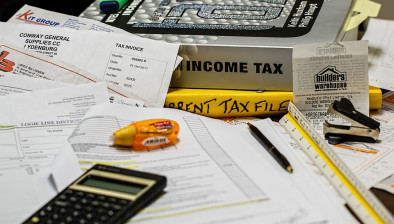Builders welcome delay to VAT change as victory for common sense
The UK Government is to delay the introduction of VAT Reverse Charging for construction companies by a year after a coalition of trade bodies and organisations highlighted its potentially damaging consequences.

Reverse charge VAT was due to come into force from 1st October 2019 but the government last week announced its decision to delay implementation until 1st October 2020.
The move follows a joint letter sent last month to Chancellor Sajid Javid, where the Building Engineering Services Association (BESA) and other key industry bodies, led by the Federation of Master Builders (FMB), pressed the government to delay the VAT changes due to the damaging impact policy would have on the sector.
Brian Berry, chief executive of the FMB, said the delay is a victory for common sense.
He added: “I’m pleased that the government has made this sensible and pragmatic decision to delay reverse charge VAT until a time when it will have less of a negative impact on the tens of thousands of construction companies across the UK. To plough on with the October 2019 implementation could have been disastrous given that the changes were due to be made just before the UK is expected to leave the EU, quite possibly on ‘no-deal’ terms.
“The situation hasn’t been helped by the poor communication and guidance produced by HMRC. Despite the best efforts of construction trade associations to communicate the changes to their members, it’s concerning that so few employers have even heard of reverse charge VAT.”
Data published by the trade body in July revealed that more than two-thirds of construction firms had not heard of the VAT changes and of those who had, around the same number hadn’t prepared.
Mr Berry said: “It is reassuring that the government has listened to the construction industry, which has come together to make clear to the government that sticking to the October 2019 timetable could lead to a loss of productivity, reduced cashflow and in the worst cases, lead to a hit on jobs, tipping some companies over the edge.
“What’s required now is for the government and industry to work together to deliver a sector-wide communications campaign, which must include plain English guidance on the changes. We also want to work with the government to deliver workshops aimed at construction employers, held in locations across the country, to explain what’s happening and why.”
The decision to delay the introduction of VAT Reverse Charging was also welcomed by BESA.
CEO David Frise said: “This is a big win for our members. Thanks to the concerted advocacy efforts of the FMB, BESA, and other trade bodies, common sense has prevailed.
“If the government had not delayed the changes, many SMEs would have been caught off guard, facing increased burden and restricted cash flows while simultaneously bracing for the serious disruptions caused by the UK’s planned withdrawal from the European Union on 31 October.
“This gives us plenty of time to help businesses plan a smooth transition in the way VAT is charged by October 2020.”
Mr Frise added: “While these changes have been delayed, it is important to remember they will still come into effect next year. So businesses must use this extra time to make sure they are fully prepared.”
The National Federation of Builders (NFB), which also partnered in the coalition of organisations to recommend a six-month delay, said it hopes to work with the government to make sure industry the industry is ready in 2020.
Richard Beresford, chief executive of the NFB, said: “Contractors and sub-contractors weren’t ready for reverse charge VAT and we are delighted that the government has listened to our industry campaign to seek a delay.
“The government has given us double the time we recommended and this will help us work together to set up improved online guidance, hold workshops and make sure the entire industry understands what reverse vat charge means for their business.”
Jim Burberry, partner at RSM, added: “In what must be seen as a victory for common sense and as a result no doubt of much lobbying from the industry, its representatives and indeed its advisors, I applaud the postponed introduction by HMRC of the VAT domestic reverse charge for construction services from 1 October 2019 until 1 October 2020.
“This postponement will be welcomed by business at a time of some turbulence around the uncertainty created by the current Brexit hiatus. It will clearly give more time for the industry to prepare itself for these changes.”
The announcement has also been welcomed by the Association of Accounting Technicians (AAT).
Phil Hall, AAT head of public affairs & public policy, said: “The VAT reverse charge makes the payment of VAT the responsibility of the customer rather than the supplier, which is an enormous change to the system. Given the magnitude of the change, the short notice and the general lack of awareness as to what this means in practice, AAT backed the National Federation of Builders and Federation of Master Builders in calling for a delay to its implementation. AAT is therefore very pleased that the Government has taken on board these concerns and agreed to a one-year delay.”

















